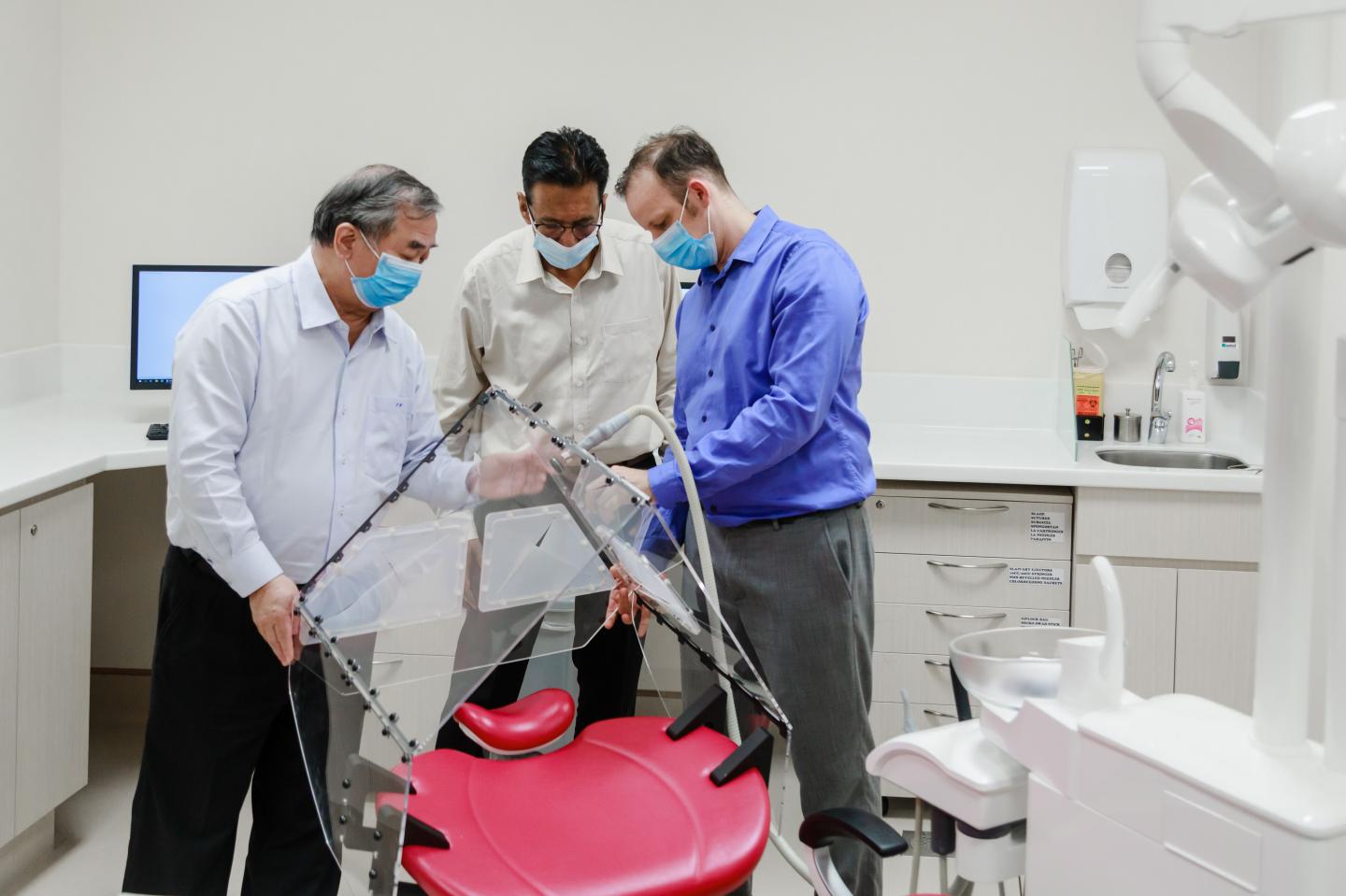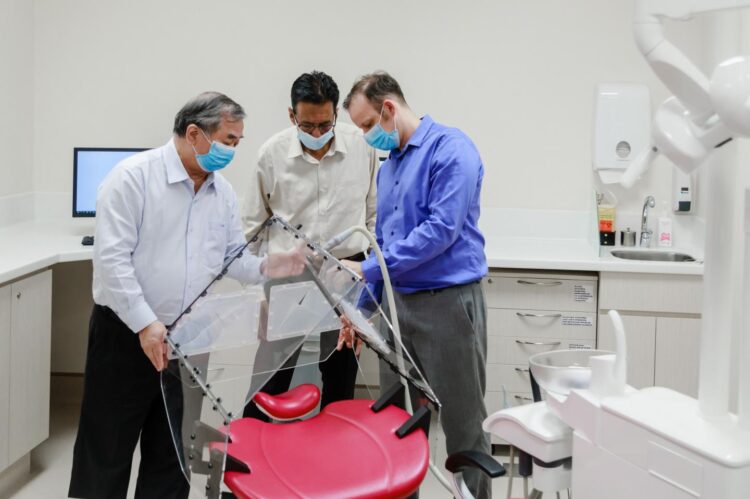
Credit: National University of Singapore
Dental treatments are performed at close proximity to the mouths and noses of the patients, and the procedures are often related to the generation of aerosols as well as handling of oral fluids and blood. This puts dentists at a high risk of exposure to COVID-19, and other critical infectious diseases.
Now, researchers from the National University of Singapore (NUS) have invented a portable tent-like shield to prevent the spread of saliva and aerosols generated during dental procedures. The Dental Droplet and Aerosol Reducing Tent (Dental DART) can be placed around the patient’s head to serve as a barrier to protect dentists, nurses and patients from direct and indirect exposure to infectious diseases such COVID-19. In addition, the Dental DART limits the spread of aerosols onto environmental surfaces, decreasing pathogen availability and potential cross-contamination.
This device is an adaptation of DART, an earlier NUS innovation that protects healthcare workers when they perform procedures that generate droplets and aerosols, such as intubation and extubation.
“The Dental DART is a design evolution, and has been prepared to protect dentists and their patients from potential infectious agents present in the aerosols that are generated during dental procedures,” said Professor Freddy Boey, NUS Deputy President (Innovation & Enterprise), who is the lead researcher for this project.
How the Dental DART works
The Dental DART is a clear tented shield with a depth of 54 centimetres at its base, and is 64 centimetres high. Its width is adjustable to between 60 and 70 centimetres, to suit dental chairs of different sizes. It comes with three access ports, for dentists and nurses to reach in and safely perform dental procedures.
The tent is attached to vacuum pumps that are available on dental chairs. This system safely removes the contaminated air from the tent, directing it to the scavenging system. This decreases the amount of contaminated materials in contact with the clinician’s hands and arms, and instruments.
“It took us three months to come up with an ideal model. We had to design ‘universal hinges’ that allow for the device to suit all models of dental chairs, derive a proper design that allows foldability, as well as incorporate suitable positions for the access ports,” shared Mr Sudarshan Anantharaman who is from the NUS Industry Liaison Office, and a co-inventor of this innovation.
The Dental DART has been tested in a clinical setting by measuring the bacterial content on the surface of the dental chair light, and on the face shield worn by the dentist. The tests were conducted before and after scaling procedures – which are known to significantly increase air contamination – were performed.
The results showed that was no increase in the number of viable bacteria on these surfaces after the treatment with the use of the Dental DART. On the other hand, without the use of the tent, there was a significant increase in contamination by 14 times.
“Personal protective equipment, or PPE, can be infected after being exposed to aerosols from dental procedures. The use of the Dental DART can decrease the PPE exposure to aerosols and prevent further environmental contamination at the time the clinicians remove theirs arms, hands, and instruments from the tent,” said Associate Professor Vinicius Rosa, who is from the NUS Faculty of Dentistry and a co-inventor of the device.
Safer visits to the dentist
The US Bureau of Labour Statistics has categorised dentists within the class of workers with the highest high risk of COVID-19 contamination due to both high proximity to individuals and exposure to disease. Furthermore, other infectious agents responsible for pneumonitis, influenza, hepatitis, skin and eye infections, may also be transmitted during routine dental procedures.
“Dentistry is an essential service and it has suffered tremendously since the beginning of this pandemic. Many dental service providers in Singapore have imposed a complete ban in aerosol-generating procedures during the COVID-19 outbreak. While imposing such extreme measure is understandable, it has also left thousands of people without proper treatment. Our Dental DART can help provide a safer environment in the dental clinic setting, and decrease the anxiety and psychological distresses imposed by the COVID-19 pandemic on all parties involved,” explained co-inventor of the device Professor Mandeep Singh Duggal, who is from the NUS Faculty of Dentistry.
Deployment in dental clinics in Singapore and globally
The four NUS researchers have filed a patent for the design of the Dental DART. They are looking to collaborate with healthcare and industry partners to make this device available to dentists in Singapore and around the world.
###
Media Contact
Carolyn Fong
[email protected]
Original Source
https:/





